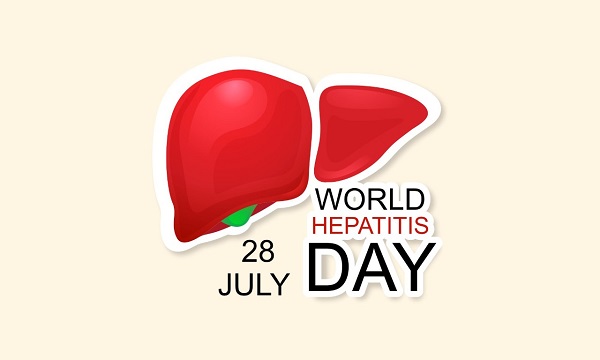
A public health expert, Dr. Gabriel Adakole has emphasised the need for increased awareness and prompt treatment of hepatitis C to prevent severe health complications in Nigeria.
Speaking in an interview in Abuja during the 2024 World Hepatitis Day commemoration, themed “It’s Time for Action,” Adakole stressed the importance of early diagnosis and management to mitigate liver damage, cirrhosis and liver cancer.
World Hepatitis Day 2024 aims to spotlight the global fight against viral hepatitis, a significant public health challenge affecting millions worldwide. Despite progress in research and healthcare, viral hepatitis remains a major cause of chronic liver disease and liver cancer, contributing to high morbidity and mortality rates globally.
Adakole explained that hepatitis C infects the liver, an organ crucial for detoxifying blood and producing essential proteins. The virus causes inflammation, slowly damaging the liver over many years and leading to scarring. He noted that cirrhosis, a severe liver disease, results from various causes, including hepatitis C. It involves scarring that replaces healthy tissue, blocking blood flow and impairing liver function. This condition prevents the liver from efficiently filtering toxins and breaking down nutrients and medications, eventually leading to liver failure.
Many Nigerians are unaware of their hepatitis C status due to inadequate screening and misinformation. Dr. Adakole called for prioritising public health campaigns to educate the population on the risks of untreated hepatitis C and the benefits of timely medical intervention. He highlighted that as cirrhosis progresses, symptoms like fatigue, loss of appetite, itching, jaundice, easy bruising, darkened urine and swelling in the abdomen and legs may appear. In severe cases, individuals may experience nausea, cognitive impairment, and memory issues.
Drinking excessive alcohol can exacerbate liver problems, causing swelling and fat accumulation, which can progress to cirrhosis. The amount of alcohol leading to liver damage varies among individuals, making medical advice essential if alcohol consumption affects daily life. Non-alcoholic causes of liver damage include nonalcoholic steatohepatitis (NASH), linked to obesity, diabetes, high cholesterol and high blood pressure. Chronic hepatitis, including hepatitis C, is the most common cause of chronic liver disease, but other causes include autoimmune diseases, medications, bacteria, and other viruses.
Conditions that narrow or block bile ducts can also inflame and damage the liver. Treatments often involve medication or minor procedures to clear the ducts. Certain medications, herbs, and genetic conditions can also contribute to cirrhosis. The specialist urged the government to invest in accessible and affordable treatment options, ensuring all Nigerians, regardless of socio-economic status, can receive the care they need. Addressing hepatitis C is crucial for improving public health outcomes and achieving the global goal of eliminating viral hepatitis by 2030.
Diagnosis of cirrhosis involves physical exams, symptom history, blood tests, imaging (ultrasound, X-ray, MRI) and, sometimes, a biopsy. Although there’s no cure for existing liver scarring, treatments can slow its progression by addressing the underlying cause, such as therapy for alcohol addiction, weight loss for fatty liver, or medications for infections and autoimmune disorders. Without treatment, hepatitis C can lead to cirrhosis in about 20 percent of those infected.
Adakole emphasised that cirrhosis represents the end stage of many decades of inflammation and injury. Once cirrhosis or liver cancer develops, treatment options become limited to liver transplants or complex cancer therapies. Preventing hepatitis C can prevent cirrhosis, thereby avoiding liver failure and liver cancer.
World Hepatitis Day, observed annually on July 28, aims to raise global awareness of hepatitis and encourage prevention, diagnosis and treatment efforts. According to Science Nigeria, over 90 million people in the region live with hepatitis, accounting for 26 percent of the global total. Nigeria has a prevalence rate of 8.1 percent for hepatitis B (HBV) and 1.1 percent for hepatitis C (HCV) among adults aged 15-64 years. The Nigeria HIV-AIDS Indicator and Impact Survey, 2018 (NAIIS 2018), reveals that over 20 million Nigerians live with hepatitis B, C, or both, yet more than 80 percent are unaware of their status.

